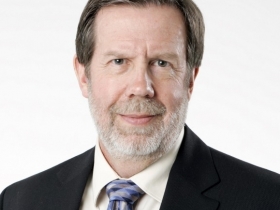Confusion Reigns on Campaign-Finance Law
Court rulings leaves state regulators reeling and candidates mystified.
Wisconsin’s Government Accountability Board (GAB) is supposed to be the cop on the campaign-finance beat. But, when they meet this week, GAB members should ask: Does our squad car’s siren still work? Any bullets left in our gun?
In less than two months, federal judges issued three rulings that struck down Wisconsin campaign-finance law or rules enacted by GAB, according to lawyers who specialize in those issues. The election-year decisions came in this order:
*In April, the U.S. Supreme Court wiped out laws putting aggregate limits on the total that individuals can donate to campaigns. That struck down Wisconsin’s $10,000 aggregate limit. The decision was a “victory for candidates, political parties and PACs in that it will allow them to seek out more contributions,” says attorney Mike Wittenwyler. “Donors who previously had ‘maxed out’ under Wisconsin’s $10,000 aggregate limit will now be allowed to contribute to more candidates, political party committees and PACs. All of these contributions will be subject to state disclosure laws.”
Randa’s ruling stopped a John Doe probe by prosecutors investigating whether conservative groups illegally conspired with Gov. Scott Walker’s campaign and GOP candidates before recall elections the governor and Republican senators survived. Federal Court of Appeals judges immediately stayed parts of Randa’s ruling, pending a trial. But, if Randa’s ruling is upheld, it would overturn GAB’s past interpretations of state law and a Wisconsin court ruling.
*Last Wednesday, 7th District U.S. Court of Appeals judges issued a broad ruling that, according to Wittenwyler, struck down the state’s ban on corporate campaign donations and two GAB rules. Wittenwyler says Court of Appeals judges threw out one GAB rule that regulated issue advocacy ads in the weeks before elections and another that imposed registration and reporting requirements on some other organizations that sponsor independent expenditures.
In an opinion written by former state Supreme Court Justice Diane Sykes, Court of Appeals judges called Wisconsin campaign-finance law outdated. “Like other campaign-finance systems, Wisconsin’s is labyrinthian and difficult to decipher without a background in this area of the law; in certain critical respects, it violates the constitutional limits on the government’s power to regulate independent political speech,” Sykes wrote.
The three rulings raise this question: What’s left of Wisconsin campaign-finance laws?
Kevin Kennedy, GAB’s executive director, declined comment. But Kennedy and the retired judges on the GAB cannot duck that question for long. The deadline for filing nomination papers is 5 p.m. June 2.
Mike McCabe, executive director of the non-profit Wisconsin Democracy Campaign that has tracked campaign-finance donations and issues for 20 years, says Thursday’s Court of Appeals ruling “doesn’t change anything.”
The “GAB wasn’t enforcing the rule that the 7th Circuit struck down,” McCabe explains. “The court just maintained the status quo, keeping the old Elections Board rule establishing the ‘magic words’ loophole in force.”
McCabe says the “magic words” rule adopted by the old Elections Board applied to campaign ads that urged voters to “vote for,” “vote against,” “elect,” “defeat,” “support” or “oppose” specific candidates. The GAB replaced the Elections Board, and has since enforced these rules.
So the GAB can still play beat cop and arrest violators, McCabe insists: “Keeping the status quo in place does not mean that (special interest) groups can coordinate with candidates. The GAB should continue to tell groups not to coordinate with candidates, regardless of whether they engage in express or issue advocacy, until such time that there is a clear direction from the courts to the contrary. Randa’s ruling is not the final word on this.”
But whatever McCabe’s certainty, the almost 300 candidates for state and federal office registered last week, as well as their advisers, are likely to be very confused, and may be turning to the state’s regulatory agency and asking, “Gee, officer GAB, can you help us?”
Steven Walters is a senior producer for the nonprofit public affairs channel WisconsinEye. Email stevenscwalters@gmail.com
The State of Politics
-
A Wisconsin Political Trivia Quiz
 Dec 15th, 2025 by Steven Walters
Dec 15th, 2025 by Steven Walters
-
The Fight Over Wisconsin’s House Districts
 Dec 8th, 2025 by Steven Walters
Dec 8th, 2025 by Steven Walters
-
The Battle Over On-Line Betting
 Nov 24th, 2025 by Steven Walters
Nov 24th, 2025 by Steven Walters





















